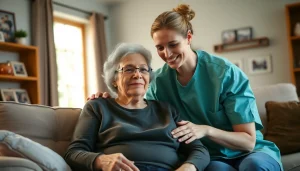Understanding Grief: The Emotional Landscape
Grief is a profound emotional response to loss, encompassing a variety of feelings, thoughts, and behaviors that can seem overwhelming. Whether it stems from the death of a loved one or other significant life changes, dealing with grief requires not only understanding but also patience and empathy towards oneself. Exploring the multifaceted nature of grief can illuminate the paths to healing and renewal.
Defining Grief in Different Contexts
Grief manifests differently depending on the nature of the loss. Traditionally, it is most associated with death, but it can occur due to separations, such as divorce or moving away from familiar surroundings. Each context brings its own unique challenges:
- Death: The loss of a loved one creates a significant void and can affect individuals deeply, leading to overwhelming sadness.
- Divorce: The end of a relationship can elicit feelings of betrayal, confusion, and sorrow for what could have been.
- Loss of Health: Diagnoses of chronic illnesses or sudden health changes can lead to a grieving process for the life that once was.
- Pet Loss: For many, pets are family members, and their passing can trigger intense feelings of grief.
Recognizing Symptoms and Responses
While grief is often characterized by sadness, it can also elicit a wide range of emotional responses, including:
- Emotional Symptoms: Sadness, anger, guilt, anxiety, and confusion.
- Physical Symptoms: Fatigue, changes in appetite, sleep disturbances, and health issues.
- Cognitive Symptoms: Difficulty concentrating, forgetfulness, or a sense of disorientation.
Understanding these symptoms is crucial as they guide the grieving person towards necessary coping mechanisms and support systems.
The Importance of Acknowledgment
Acknowledging grief is a critical first step towards healing. Allowing oneself to feel the full range of emotions is essential rather than suppressing feelings or placing pressure to ‘move on’ quickly. Healthy acknowledgment promotes emotional release and paves the way for recovery by allowing individuals to process their experiences genuinely.
The Stages of Grief: What to Expect
Grief is often described in stages, although it is important to note that individuals may not experience all stages linearly or in the same order. Understanding these stages can foster greater comprehension and compassion for oneself and others in similar situations.
The Five Stages Explained
Elisabeth Kübler-Ross identified five stages of grief: denial, anger, bargaining, depression, and acceptance. Here’s an overview:
- Denial: This initial stage serves as a defense mechanism, allowing an individual to buffer the shock. Denial helps absorb the initial impact of the loss.
- Anger: Once the individual recognizes the reality of their loss, feelings of frustration and helplessness can manifest as anger. This anger may be directed towards oneself, others, or the situation itself.
- Bargaining: The individual may seek to bargain with a higher power to alter the loss or bring back what was lost, often accompanied by “if only” thoughts.
- Depression: In this stage, deep sadness and despair set in as the individual starts to come to terms with the reality of their loss.
- Acceptance: This final stage involves coming to terms with the reality of the loss, leading to a gradual re-engagement with life and new possibilities.
How Each Stage Feels and Why It Matters
Understanding how each stage feels can assist those grieving and their support systems. For example, recognizing that anger is a normal reaction can help remove feelings of guilt or shame surrounding this emotion. Moreover, realizing that depression is part of the process encourages individuals to seek support, rather than suffer in silence.
Common Misconceptions About Grieving Stages
It’s essential to dispel the myth that one must move through these stages sequentially. Grief is highly personal and non-linear. An individual may oscillate between these stages at different times, as each person’s journey is uniquely their own. Furthermore, some individuals might experience additional stages not traditionally recognized, such as shock or yearning.
Healthy Coping Mechanisms When Dealing with Grief
While dealing with grief requires a personalized approach, certain coping mechanisms have shown to be beneficial for many individuals. Practicing these can help facilitate the grieving process and promote emotional healing.
Finding Support: Friends, Family, and Professionals
A strong support network is integral to processing grief. Sharing feelings with trusted friends and family can provide comfort and validation. Professional support, such as therapists specializing in grief counseling, can offer additional coping strategies and techniques for managing emotions. Support groups can also be valuable, as they connect individuals experiencing similar losses, fostering understanding and community.
Practical Activities to Express Feelings
Engaging in practical activities can provide a healthy outlet for grief. Consider the following options:
- Journaling: Writing about feelings can help process emotions and provide clarity.
- Creative Outlets: Painting, crafting, or playing music can serve as powerful tools for expression.
- Physical Activity: Exercise has been shown to release endorphins, improving mood and facilitating better emotional health.
Mindfulness and Meditation for Healing
Mindfulness practices, including meditation and yoga, can help cultivate awareness and acceptance of current emotions, grounding individuals during turbulent times. These practices can reduce anxiety and foster a sense of peace amid chaos. Techniques such as deep breathing, visualization, and guided imagery have proven beneficial in promoting relaxation and emotional clarity.
The Role of Rituals and Memories in Grieving
Engaging in rituals can provide comfort and structure as one navigates through grief. Rituals anchor individuals in their memories and feelings, facilitating connection to the lost loved one.
Creating Personalized Rituals for Healing
Personalized rituals can vary significantly based on cultural or personal preferences. Examples include:
- Memorial Services: Hosting a dedicated service to honor the deceased can help gather support and foster community.
- Anniversary Remembrances: On the anniversary of the loss, engaging in activities that honor the loved one can facilitate connection and sweet remembrance.
- Planting a Tree or Garden: Establishing a living memorial in honor of a loved one offers a place for reflection and remembrance.
Honoring Memories Through Storytelling
Sharing stories about the person who has passed can be a cathartic experience. This could involve family gatherings, where anecdotes and memories are shared, creating a lasting narrative that commemorates the individual’s impact on others’ lives.
Using Art and Creativity as a Grief Outlet
Artistic expression can serve as a profound means to convey grief. Creating a scrapbook filled with photos and memories, painting, or even writing poetry allows individuals to process their emotions artistically and create a lasting tribute to those they have lost. Group art therapy sessions can also facilitate communal healing experiences.
Moving Forward: Life After Grief
As the grieving process evolves, so too does the journey towards moving forward. Life after a significant loss can feel daunting, but it is also the opportunity for growth, self-discovery, and resilience.
Redefining Relationships and Role Changes
Loss can often result in shifts in familial and social dynamics. As roles change, open dialogue about these changes can help individuals express needs and re-establish connections. It’s vital to acknowledge that relationships may need redefining after a loss, and these transitions can bring new forms of support and connection.
Strategies for Future Emotional Health
Future emotional health can benefit from the incorporation of self-care routines and healthy coping strategies. Develop a supportive network, establish regular routines, and set aside time for hobbies and interests that promote joy and fulfillment. Goals, no matter how small, encourage a focus on the future and can instill motivation and purpose.
When to Seek Further Help: Counseling and Support Groups
It’s important to recognize when grief becomes overwhelming or begins to interfere with daily functioning. Seeking professional help, such as therapy or joining a support group, can facilitate healing and provide valuable resources. Licensed grief counselors can provide tailored support to navigate complex emotions and issues arising from the grieving process.








